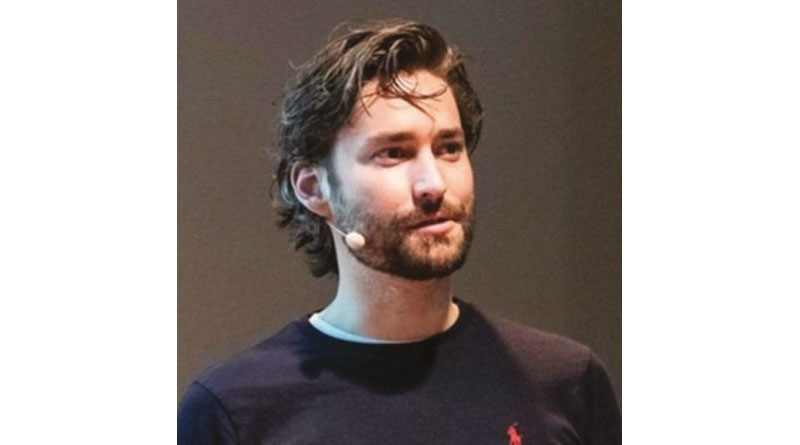Combatting Labour Shortages in Hospitality

By Tony De Graaf, Hiring Success Director EMEA, SmartRecruiters (www.smartrecruiters.com)
Job vacancies in the hospitality sector rose by almost 700% from November 2021 to January 2022 compared with the same period last year.
With current estimates putting the number of empty job roles at 178,000, there is clearly an issue with recruiting and retaining skilled and motivated workers. When businesses struggle to hire and keep staff on, alarm bells begin to ring. Is it company culture? Is the employer not investing in the development of its staff? Or is the recruitment process not optimised for both the candidate and recruiter?
Attracting and engaging prospective talent
The fact is that there isn’t a shortage of workers, it’s a shortage of those feeling engaged with the sector. The retail and hospitality industries are renowned for being high turnover sectors, highlighting the need for businesses to rethink their approach to hiring into a process that shows applicants they are valued, and the business is grateful for their application.
This involves an investment of time from the recruiter to provide individual feedback and efficient communication. Unfortunately, due to the time needed to complete this and provide a positive experience to candidates, many processes fail to engage applicants.
Creating an engaging experience early on is key to building relationships with applicants and is more likely to end with employees staying loyal for years after they apply. Nurturing this relationship early on is key and will make your establishment stand out amongst competitors. A good candidate experience will then be shared by an applicant throughout their network – friends, family and even social media. With prospective talent dotted throughout the internet, social media posts about bad encounters will cause the best candidates to avoid hospitality establishments with a reputation for poor hiring processes.
Furthermore, when building a reputation in the hospitality sector, positive employee feedback will feed into potential customers, particularly in local businesses. Investing in a strong and engaging application and recruitment process will ensure positive employee experiences, boosting the level of applications and improving the likelihood of staff retention.
Surfacing the most suitable candidates
Once a relationship with an applicant is started, open and direct communication is a must. Hospitality positions, particularly zero-hour contract positions that generally attract younger workers, are often bombarded with applications. Due to the sheer volume of candidates, hiring managers don’t always have the time to provide reasons as to why the applicant was or wasn’t hired.
Utilising Artificial Intelligence (AI) in the recruitment process, hiring teams can filter applications and in turn surface only the most suitable candidates for the job with algorithms that flag specific traits and qualifications. With filtering done at such speed, establishments can begin interviewing as quickly as possible and fill their vacancies at a faster rate. During peak seasons such as summer and Christmas, this increase in efficiency is particularly important.
As well as surfacing the most suitable candidates at the first stages of the application process, AI recruitment can help with future applications. Rather than disregarding previous unsuccessful applicants who were still qualified for the job, organisations can store these profiles, creating a wider talent pool to select from during peak seasons or when company expansion occurs. Recalling these candidates further down the line for new positions saves time for recruiters finding the right talent whilst also keeping candidates engaged.
Demonstrating that their application was taken seriously allows for a relationship to be continued and increases the likelihood they will accept a position in the future.
Boosting employee retention rates
The experience doesn’t just stop at accepting a role, though. Employees must continue to feel valued throughout their employment if businesses want to keep their staff. If the engagement from the employer is superficial, employees will see through it and find an establishment that values them and their work.
When an employee can see the value they bring to the business, and investment in their development is shown, they are more likely to stay. Using AI driven software can enable employees to be hired into the jobs that suit them from a skills and company culture level, providing them with the right place to progress. This not only increases confidence in the employee, but also drives productivity levels up due to people enjoying their jobs and the people around them.
Engaged employees = Better Value
Job vacancies are riddling the hospitality space, causing business leaders to panic about how to hire the best talent. However, this process shouldn’t be anxiety ridden. Many small hospitality businesses don’t have the manpower to sieve through hundreds of applications and are instead focusing on giving their customers the best experience.
By introducing AI into the recruitment process, those responsible for hiring within the business can balance their focus on the candidate and their customers, keeping both sides engaged. It also haves time, allowing them to focus more on selecting the most suitable talent whilst also providing a rewarding experience for candidates. This will increase employee retention levels with happy and well-placed employees whilst also boosting establishment reputation, leading them to pass on this positive experience to customers.
